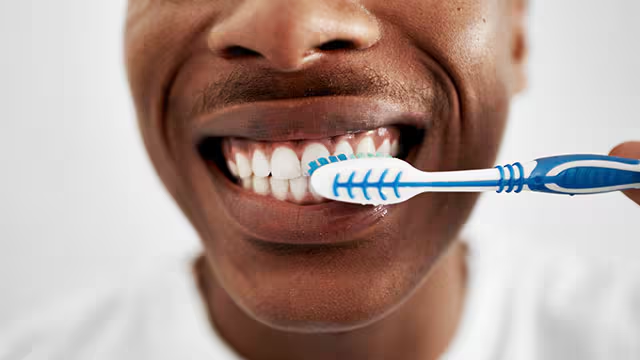Think hard bristles mean a better clean? Think again. Discover how using a hard toothbrush can silently damage your gums, enamel, and dental work—and what to do instead.
Think hard bristles mean a better clean? Think again. Discover how using a hard toothbrush can silently damage your gums, enamel, and dental work—and what to do instead.

We all want to keep our teeth clean and healthy—it’s a fundamental part of oral hygiene. But there’s a common misconception that the harder you scrub, the cleaner your teeth will be. This often leads people to choose toothbrushes with hard or firm bristles, believing they’re more effective.
However, in the world of dentistry, this belief couldn’t be further from the truth. Using a hard-bristled toothbrush can cause significant and irreversible damage to your teeth and gums. It’s a hidden danger lurking in many bathrooms—one that may be silently contributing to oral health issues you haven’t yet traced to your toothbrush.
While a hard brush might feel like it’s giving you a deep clean, the abrasive nature of the bristles often causes more harm than good:
This is one of the most damaging effects of hard brushing. When combined with aggressive brushing, hard bristles can wear away gum tissue, leading to:
Your enamel is strong—but not invincible. Hard bristles can act like sandpaper, gradually eroding this protective layer:
If you have fillings, veneers, crowns, or bonding, hard bristles can scratch or dull these restorations—or even damage the margins—shortening their lifespan and affecting their appearance.
Ironically, hard bristles are less effective at cleaning between teeth and along the gum line—where plaque loves to hide. Their rigidity prevents them from reaching into small crevices.
The good news? These issues are entirely preventable. Here’s how:
Your teeth and gums are essential to your health and confidence. Treat them with the gentleness they deserve. If you’ve been using a hard toothbrush, now is the perfect time to make the switch.
You’ll be amazed at how a softer approach can lead to a healthier, happier smile.
Experiencing sensitivity or gum issues?
Don’t wait—schedule an appointment with us today. We’re here to support your journey to optimal oral health.

Need help? Our team is just a message away